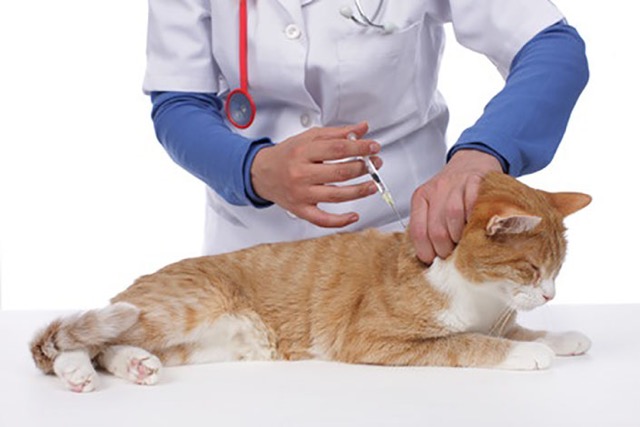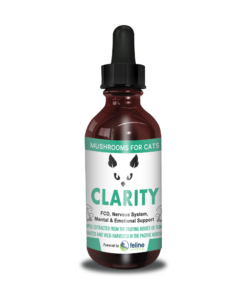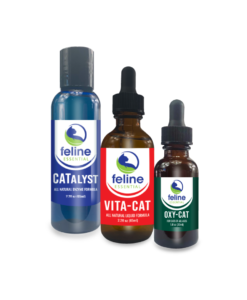Ahh…vaccines. One of the most debated topics of this century. Almost everyone has an opinion about when and if, how much and why, to vaccinate your children. But what about our fur babies? What about our cats? If there is so much confusion between scientific studies and medical professionals, how do we know that we aren’t over vaccinating our cats?
I’ve been doing research on this for several years – but recently, a number of you have contacted me with some disturbing vaccine related issues and stories. I’ve been shocked to learn that many vets may not be following the current vaccine guidelines for cats – that have been in place and in writing for nearly 20 years. The stories I’ve heard over the past several months have compelled me to share some very basic information with all of you, in the hopes that everyone may be spared the experience of over vaccinating our cats.
First and foremost, it’s important to develop a comfortable relationship with your vet. Questions about our cat’s care should be welcome and addressed. Finding the ‘right’ vet may not be easy, but it is invaluable when important questions, like vaccine schedules, need to be explained.
Now, I’d like to start with a quick question to ponder: How often do you get vaccinated for measles, mumps, tetanus, etc.? Yearly? Every 3 years?
Most likely you don’t.
So why aren’t more cat owners questioning their veterinarians when they get the reminder card, asking you to bring your kitty in for her “yearly vaccines”?
The standard for vaccine guidelines for the past 18 years has called for a much longer period of time between vaccines – making this ‘yearly’ reminder unnecessary. And these accepted guidelines are based on evidence that considers the duration of immunity (or DOI) that a vaccine provides (in some vaccines, DOI is lifelong). For example, the common combo shot (FVRCP) should only be given once every 3 years at most – and likely much, much less if your cat is an indoor-only cat.
The purpose of vaccines is to increase immunity to certain diseases – and our immune systems are remarkable things. A cat’s immune system is just as evolved as ours. In fact, the feline immune system actually has a very great memory- as modern research shows – so subjecting our cats to a yearly round of injections is unnecessary. It is why I’ve heard so many stories recently about the consequences of over vaccinating our cats.
It’s also very important to understand that there is always a risk when you administer vaccinations – it’s true that vaccines save lives, but it’s also true that no vaccine is 100% safe. Kidney inflammation and Anaphylaxis are two of the most common problems caused by feline vaccines. Other vaccination reactions include respiratory problems, neurologic and eye disease, swelling at injection site, mild fever, decreased appetite and lameness.
Understanding these side-effects will make any cat parent think twice before going in for those yearly vaccines. It should also facilitate a good round of questions for your vet if he or she argues that neglecting these yearly (and expensive) visits means I’m an irresponsible pet parent (as one vet did to me many years ago).
Now, I would like to make clear here that I am, in no way, anti-vaccinations for cats. The initial FVRCP vaccinations for kittens at 9 weeks and again at 15 weeks is recommended. Any other vaccinations will only be necessary if your cat is at high risk for contracting certain fatal illnesses (i.e. outdoor cats who will be exposed to other cats should receive ONE feline leukemia vaccination and a 3 year PureVax rabies vaccination). My cats do not go outside so they do not get these shots. And always remember that every bottle of vaccine states on the label that the product is only intended for healthy cats. If your cat is unwell, vaccinating is not recommended.
P.S. If you live in a state where the law requires yearly vaccines, consider discussing a waiver form with your vet.





Recent Comments